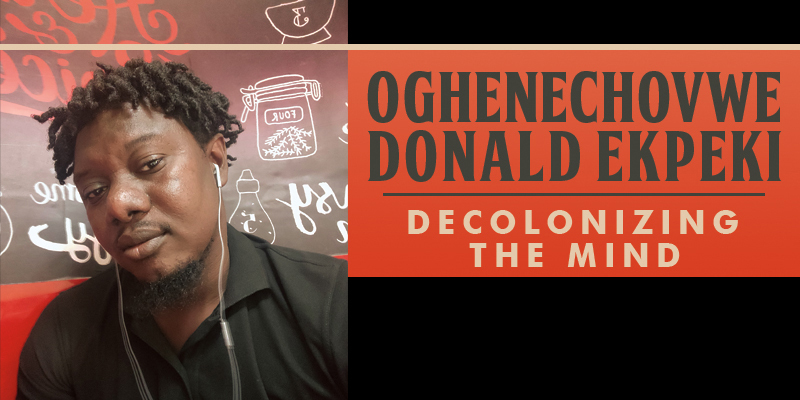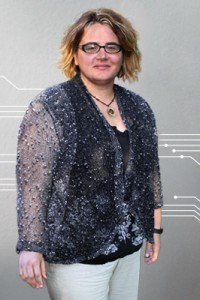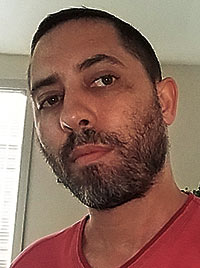Oghenechovwe Donald Ekpeki: Decolonizing the Mind

Oghenechovwe Donald Ekpeki was born in Ughellii, Delta State, Nigeria. He studied Law at the University of Lagos and later attended law school there. He is currently writing and editing full-time.
He began publishing stories in 2018, and has produced several stories, including Nommo Award winner “The Witching Hour” (2018). “Ife-Iyoku, the Tale of Imadeyunuagbon” (2020) won the Otherwise Award and was a finalist for BSFA, Sturgeon, Nebula, and Nommo Awards.
Ekpeki is also the editor of British Fantasy Award winner Dominion: An Anthology of Speculative Fiction from Africa and the African Diaspora (2020, with Zelda Knight) and The Year’s Best African Speculative Fiction: Volume 1 (2021). He also co-edited Invictus Quarterly, a journal of illustrated SF, with Knight, an issue of the Selene Quarterly Magazine, and the collections issue of Interstellar Flight Press. Anthology Africa Risen: A New Era of Speculative Fiction, co-edited with Sheree Renée Thomas & Knight, is forthcoming.
Ekpeki lives in Lagos, Nigeria.
Excerpt from the interview:
“We started as kids with C.S. Lewis – that’s the kind of book you find in the local library. From there we moved on, and before long we had read practically all the books in the local library, and moved on to buying secondhand books in secondhand bookstores, because new books were practically unavailable, or too expensive when they were available. The problem with reading that way is we only had access to the most prominent titles. The books that trickle down to places like this are the ones that oversaturated their home markets, so people start shipping them over. The books we got were usually by straight, male, white authors, like Stephen King, Robert Jordan, Terry Goodkind, and ‘traditional’ fantasy. There wasn’t much science fiction, and there definitely were not diverse authors like Samuel Delany and Octavia Butler. I only started to diversify my reading recently, because a lot of that work was unavailable. Another side effect is that your reading is lopsided. You couldn’t really choose. They’re secondhand bookstores, so there’s no order, just huge bags of books. You just dip your hand in the bag, and you get whatever comes out. You get to read book five in a series, and that might be the first one you read, and the second book you read might be number 13, and the next book you find might be volume one. But we managed to put them all together.
“More recently, with the internet, I discovered Delany, Butler, etc. With the internet we had a chance to buy books and get books online, and things became a lot more accessible, but we’re still playing catchup because it took a while for us to really have access to things. The internet, first and foremost, wasn’t affordable for a lot of people. It’s still not very affordable now, but for a long time it was entirely inaccessible. You had to walk long distances to public cyber cafes where you could buy browsing airtime, maybe an hour. But then as we grew older, and got access to phones, there was more of an ability to get what’s out there. It’s still a bit of playing catchup, because you have to manage your time, you have to survive and take care of yourself, and do your reading while also doing some writing.
“I was influenced by a lot of the science fiction and fantasy I read earlier, more of the epic fantasy writers, like Robert Jordan, Terry Goodkind, C.S. Lewis, Piers Anthony, and all those writers. I also read horror, like Stephen King, Anne Rice – but I’m trying to make my reading and my writing a bit more diverse. I’m making it an objective to push away from the norms or the styles that I imbibed early on. My writing now tends to focus on African speculative fiction – stories set here. I tend to read more diverse authors now, too, like Nnedi Okorafor and Sheree Renée Thomas, so there’s a deliberate shift from what I used to consume and towards the kind of stuff I want to write. A lot of us absorbed things from Western cultures based on how we were socialized growing up and what we read, so the instinct is for us to write stories with Western characters and themes. Every time you’re writing, you have to stop yourself and consciously pull away from that instinct – it’s sort of like decolonizing the mind.
“You can be yourself. Chimamanda Adichie, the Nigerian writer, talked about that in one of her interviews. Early on when she started writing, she was writing about characters drinking tea and eating Western food, whereas she had never really seen or interacted with people like that. She had to make a conscious shift. It’s the same with most writers who start out in a place that’s been colonized. When a place is colonized, it’s not just the politics that come in – they colonize with their cultures, their language, their expressions, and the arts, so there has to be a conscious process to shake that influence. That’s what we’re doing now. The problem is that when the decolonization process started, there was a focus on literary fiction, and speculative fiction was left out. Now we’re trying to make sure there’s fantasy that reflects the kind of people and issues that are important to readers over here.
“Writing and publishing are the only things I’m doing at the moment. But at the same time, I’m doing it on the side. My main job is surviving – being alive out here at the end of every day – and that takes a surprising amount of effort in this part of the world. I’m only writing, but it seems like a side job, because I don’t have enough time to focus on it as much as I would like. So I only have a handful of short stories out and one novella. I’m working on long novellas and novels, but it’s coming slowly. Anybody who’s out there reading, those six-figure advances you read about would really help me out. I’m hoping to have some work by the end of the year, at least the first drafts. I don’t have an agent yet.
“I studied law, like I mentioned, but I decided not to pursue my call to the bar, because I don’t want to practice. I’m basically taking this time to give writing my all – or whatever is left over from trying to survive. I try to stay on top of things, but it’s coming up slowly. Living in what they used to call the third world, and what a lot of people would call a developing country, leaves lot to be desired, economically. Nigeria is… Nigeria. There’s poor internet, inconsistent electricity, insecurity, no healthcare. Getting things together every day takes a sort of effort. Trying to survive affects your creativity and your writing process. But nevertheless, I’m trying to give it a shot before I resign myself to being a slave to capitalism.
“People say every writer is at the heart of their story, and basically all our stories are the same. I don’t know how true that is, but I know there is a common thread through all my stories, and it seems as if there’s something at the core of my being. I don’t know if it’s coincidental or it’s subconscious, but my works always have a common thread. They are about power. I don’t mean electricity – I mean power in itself. Power, the lack of power, and the efforts that people make to obtain it. The costs of obtaining power, and the uses to which people put it. Power, identity, and struggle are subjects I’ve noticed in my work, and it’s also something I know is prevalent where I am. As I’ve said before, this entire continent has been colonized and had power and control ripped from it for centuries. For a Black person on the continent, there was slavery, and colonialism, and then what people would call neocolonialism. Grappling with the absence of power and what it means in our everyday lives is something that we’re conversant with, and it’s something that rolls through my work. Whatever the position, sexuality, or gender of my characters, there tends to be that struggle. Whatever the plots, whatever the world, whatever the genre, if it’s science fiction or fantasy, that preoccupation with power is something I have noticed in my work.
Interview design by Stephen H. Segal.
Read the full interview in the December 2021 issue of Locus.
 While you are here, please take a moment to support Locus with a one-time or recurring donation. We rely on reader donations to keep the magazine and site going, and would like to keep the site paywall free, but WE NEED YOUR FINANCIAL SUPPORT to continue quality coverage of the science fiction and fantasy field.
While you are here, please take a moment to support Locus with a one-time or recurring donation. We rely on reader donations to keep the magazine and site going, and would like to keep the site paywall free, but WE NEED YOUR FINANCIAL SUPPORT to continue quality coverage of the science fiction and fantasy field.
©Locus Magazine. Copyrighted material may not be republished without permission of LSFF.






